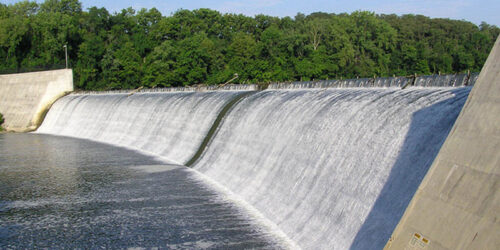Expressing concern over long delays, the National Electric Power Regulatory Authority (Nepra) has directed the power sector entities concerned to immediately include hydroelectric power in the definition and scope of renewable energy and submit a compliance report at the earliest.
In a letter to managing director of the National Transmission & Despatch Company (NTDC), managing director of the Private Power & Infrastructure Board (PPIB) and chief executive officer of the Alternative Energy Development Board (ARDB), the regulator recalled that last year it had asked for inclusion of “hydropower in the scope and definition of renewable energy in various energy policies, rules and regulations”.
“Furthermore, it was desired to make necessary amendments in all relevant documents and include hydropower in the scope of upcoming ARE (Alternate and Renewable Energy) Policy 2019,” said the letter. It said Nepra Chairman Tauseef H. Farooqi raised the issue at various forums and, therefore, a report on the latest status regarding regulator’s advisory issued in June 2020 be submitted at the earliest.
Officials said the government had announced the AREP in August last year with a commitment that hydropower would soon be included in the renewable energy category. Under the AREP 2020, the government set a target of increasing the share of ARE in total power supply to 20 per cent by 2025 and 30pc by 2030 from about 5pc at the time.
Then power minister Omar Ayub Khan had also announced in August last year that hydropower would soon be included in the ARE category and its share would be increased to 60pc of power generation by 2030.
However, hydropower did not make it to the AREP 2020, although the federal government decided to merge the PPIB and AEDB — the former set up to promote private investment particularly in hydropower projects and the latter created to promote wind, solar energy, etc. This has angered the power regulator.
Earlier, the regulator had clearly expressed its frustration that hydropower was not being considered under the scope and definition of renewable energy, which was contrary to the standards used worldwide.
The regulator argued that hydropower is the most advanced and mature renewable energy technology and is being utilised extensively to generate electricity in more than 160 countries, including Australia, Norway, Brazil, Canada, Vietnam, Sweden, the United States and China.
Moreover, hydropower is an attractive renewable energy option due to the low cost of electricity thus produced, low greenhouse gas emissions and flexibility it provides to the grid. Therefore, hydropower should be included in the scope of renewable energy in various energy policies, rules and regulations.
This has come at a time when the Cabinet Committee on Energy (CCoE) has approved the Indicative Generation Capacity Expansion Plan (IGCEP) 2021-30, which focuses on pursuing renewable and nuclear energy projects amid protests by Khyber Pakhtunkhwa and Azad Kashmir — both of which are rich in hydropower resources as compared to solar, wind and coal resources in Punjab and Sindh.





